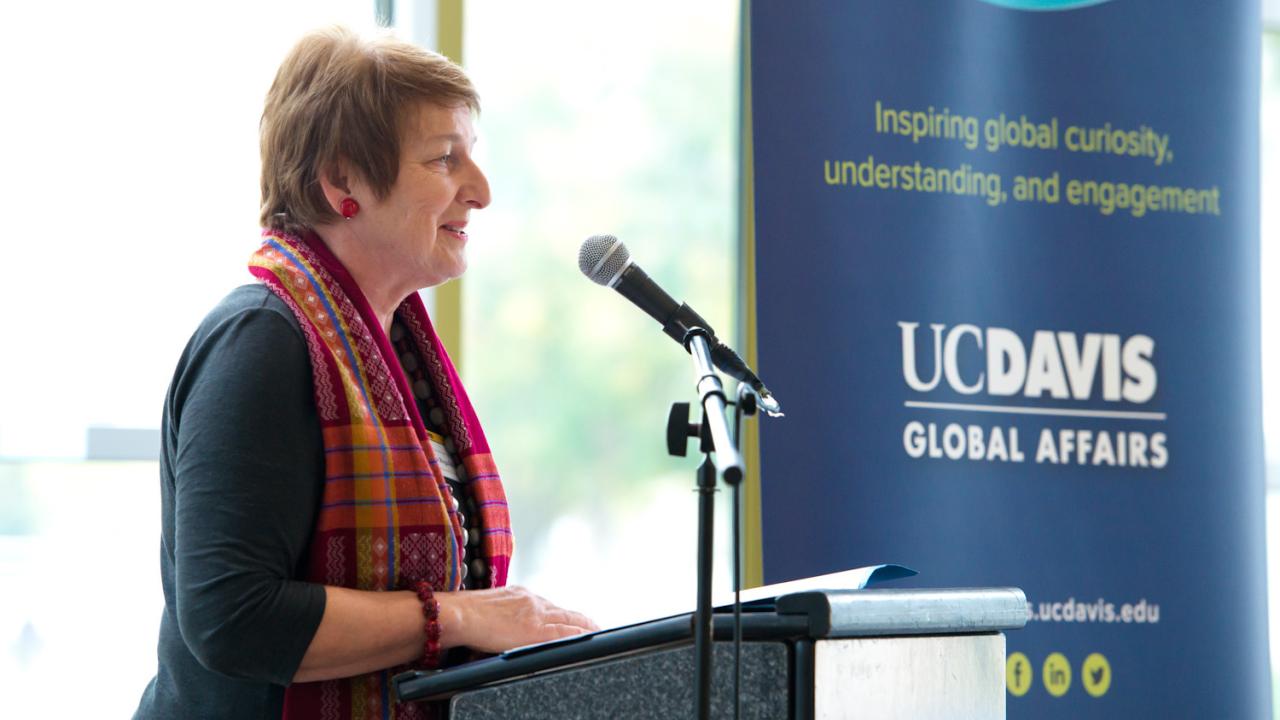
The #MeToo Movement as a Global Learning Moment
By Joanna Regulska, vice provost and associate chancellor of Global Affairs, UC Davis
"Most women around the world have experienced sexual harassment, assault, and violence, or have at times been pushed into a zone where they knew it did not feel right. They have experienced the “same” moment, and yet for each of them it has been a different moment. For some it was an “aha” moment; for some the pain, emotional and physical, may have been unbearable, lasting for days, months, or years. For others still, this moment had to be deeply buried. It could not be spoken about because of its cultural and political context; it was identifiable but stripped of the power that comes from naming. This moment of articulation and recognition may be shaped by women’s age, sexual orientation, trans status, race, ethnicity, socioeconomic position, religion, by broader cultural practices, and by a great many other formative experiences, present and past.
This essay places the #MeToo movement within the context of global learning. Given the global nature of sexual harassment, assault, and violence against women, but also given the common dismissal of such women’s experiences, what responsibilities do we have as international educators? How should we place this particular moment within a larger and broader effort in order to provide our students with global and international understanding? How can we harness this global movement in ways that will advance intercultural and intracultural awareness? How can we engage our students, faculty, and staff members in exploring these spaces of lived experiences that are so full of emotions, fear, and pain, but at the same time are embedded within diverse cultural practices in ways that may well give rise to misunderstandings?
The Complexities of the Moment
This is a very powerful and yet a very complicated moment. It is powerful because it resonates with women around the world and therefore presents an opportunity to have conversations in different parts of the world and with people representing different cultural experiences and perspectives: this is an opportunity for global learning at home and abroad. As I travel to different countries, I also hear denial, dismissal, and open criticism. #MeToo does not resonate with everyone; for many, it is seen as a matter of a privilege that women living under extreme poverty or in war-torn countries cannot afford.
This is an exciting moment because women are defining what harassment, violence, and assault mean for them. How have these lived experiences affected their own understandings of their bodies or of their positions within the larger society? But it is also a complicated moment because it requires from us a recognition that it is formed by local cultural context, political climate, powerful institutions, class, racial and ethnic privileges, heteronormativity, and many other pressures, exercised by networks of power and domination.
The Gendered Hierarchies of Power
Many research papers, articles, legal briefings, conferences, and seminars have attempted to define sexual harassment, assault, or violence against women. Women have spoken, written, demonstrated, and testified, yet it remains that many definitions and much of the current legal framework has been written by men and decided by men. Male-dominated religions govern, legislate, and control the bulk of cultural practices. Most legislative and executive bodies are dominated by men. The legal profession is governed predominantly by men. Patriarchal standards form the norms.
The Invisibility of Diversity
Most importantly, in our quest for a voice and for action we need to acknowledge diversity. Women vary in many ways, in skin color, ethnicity, sexual orientation, trans status, age, cultural beliefs, and/or socioeconomic status. Moreover, their intersecting identity markings make some women more vulnerable than others. All these variations demand that all their voices be heard, acknowledged, and reckoned with."
Read the full piece at Boston College's International Higher Education's Volume 94 or as a PDF.